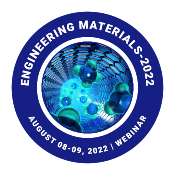Bio materials and Tissue Engineering
Biomaterials focus on the development of materials that improve the interface between technology and human tissues. For example, controlling neural responses to materials could aid in allowing effective recovery from spinal cord injuries. Biomaterials are a science that's been around for about fifty years. Biomaterial science or biomaterial engineering is the study of biomaterials. Throughout its history, it has witnessed steady and strong expansion, with many corporations investing large quantities of money in the development of new products. Medicine, biology, chemistry, tissue engineering, and materials science all play a role in biomaterial science.
Tissue engineering is a biomedical engineering discipline that restores, maintains, repairs, or replaces a range of biological tissues using a combination of cells, engineering, material technologies, and appropriate biochemical and physicochemical variables. The placement of cells placed on a tissue scaffold to build new tissue is common in tissue engineering.
Related Conference of Bio materials and Tissue Engineering
9th International Conference on Astronomy, Astrophysics and Space Science
17th International Conference on Exhibition on Lasers, Optics & Photonics
11th International Conference on Quantum Physics and Mechanics
Bio materials and Tissue Engineering Conference Speakers
Recommended Sessions
- Batteries and Energy Materials
- Bio materials and Tissue Engineering
- Computational Materials Science
- Emerging Technologies in Materials Science
- Materials Chemistry and Physics
- Materials Engineer Training and Career
- Materials Science and Engineering
- Mechanics and Materials Science
- Mining, Metallurgy and Materials Science
- Nanotechnology in Materials Science
- Polymer Science and Technology
- Structural Materials and Characterization
Related Journals
Are you interested in
- 3D Laser Triangulation - Euro Optics 2026 (Italy)
- Advancements in Photonics - Optics-2026 (Switzerland)
- Algorithms in Quantum Computation - Quantum Mechanics 2026 (Switzerland)
- Applications and Trends in Optics and Photonics - Optics-2026 (Switzerland)
- Astrobiology and Life Beyond Earth - ASTRO PHYSICS 2026 (France)
- Classical & Physical Optics - Euro Optics 2026 (Italy)
- Cosmology and the Early Universe - ASTRO PHYSICS 2026 (France)
- Earth Observation and Remote Sensing - ASTRO PHYSICS 2026 (France)
- Fiber Laser Technology - Optics-2026 (Switzerland)
- Fiber Lasers: New Types and Features Expand Applications - Euro Optics 2026 (Italy)
- Future Trends: Interstellar Travel and Space Colonization - ASTRO PHYSICS 2026 (France)
- Geometrical Optics - Euro Optics 2026 (Italy)
- Gravitational Waves and High-Energy Astrophysics - ASTRO PHYSICS 2026 (France)
- Interpretation of Quantum Mechanics - Quantum Mechanics 2026 (Switzerland)
- Laser and Its Types - Euro Optics 2026 (Italy)
- Laser Systems - Optics-2026 (Switzerland)
- Lasers in Medicine - Euro Optics 2026 (Italy)
- Nano & Quantum Optics - Euro Optics 2026 (Italy)
- Nano photonics and Bio photonics - Optics-2026 (Switzerland)
- Nuclear Engineering - Quantum Mechanics 2026 (Switzerland)
- Nuclear Fission and Fusion - Quantum Mechanics 2026 (Switzerland)
- Nuclear Physics - Quantum Mechanics 2026 (Switzerland)
- Nuclear Quantum Physics - Quantum Mechanics 2026 (Switzerland)
- Observational Astronomy and Telescope Technology - ASTRO PHYSICS 2026 (France)
- Optical Communications and Networking - Optics-2026 (Switzerland)
- Optical Fiber - Optics-2026 (Switzerland)
- Optical Imaging and Sensing - Euro Optics 2026 (Italy)
- Optical Physics - Optics-2026 (Switzerland)
- Optical Technologies - Euro Optics 2026 (Italy)
- Optics and Lasers in Medicine - Optics-2026 (Switzerland)
- Optics in Astronomy and Astrophysics - Euro Optics 2026 (Italy)
- Optics in Astronomy and Astrophysics - Euro Optics 2026 (Italy)
- Optoelectronics - Optics-2026 (Switzerland)
- Photonic Crystal Materials and Crystallography - Euro Optics 2026 (Italy)
- Photonics and its Devices - Euro Optics 2026 (Italy)
- Planetary Science and Exoplanets - ASTRO PHYSICS 2026 (France)
- Principle of Interferometers - Euro Optics 2026 (Italy)
- Quantum Chemistry - Quantum Mechanics 2026 (Switzerland)
- Quantum Chromodynamics (QCD) - Quantum Mechanics 2026 (Switzerland)
- Quantum Control and Measurement - Quantum Mechanics 2026 (Switzerland)
- Quantum Cryptography - Quantum Mechanics 2026 (Switzerland)
- Quantum Field Theories - Quantum Mechanics 2026 (Switzerland)
- Quantum Information & Quantum Computing - Quantum Mechanics 2026 (Switzerland)
- Quantum Mechanics - Quantum Mechanics 2026 (Switzerland)
- Quantum Nanoscience - Quantum Mechanics 2026 (Switzerland)
- Quantum Optics - Quantum Mechanics 2026 (Switzerland)
- Quantum Physics - Quantum Mechanics 2026 (Switzerland)
- Quantum Science and Technology - Optics-2026 (Switzerland)
- Quantum Science – Foundations and Frontiers - Quantum Mechanics 2026 (Switzerland)
- Quantum Technology - Quantum Mechanics 2026 (Switzerland)
- Quantum Thermodynamics - Quantum Mechanics 2026 (Switzerland)
- Quantum Transport - Quantum Mechanics 2026 (Switzerland)
- Silicon Photonics and Organic Photonics - Euro Optics 2026 (Italy)
- Solar Physics and Space Weather - ASTRO PHYSICS 2026 (France)
- Space Missions, Satellites, and Instrumentation - ASTRO PHYSICS 2026 (France)
- Space Technology, Robotics, and AI in Astronomy - ASTRO PHYSICS 2026 (France)
- Stellar and Galactic Astrophysics - ASTRO PHYSICS 2026 (France)
- Surface Enhanced Spectroscopy (SES) - Optics-2026 (Switzerland)
- Technologies in Lasers, Optics and Photonics - Optics-2026 (Switzerland)
- Theoretical Astrophysics and Computational Modeling - ASTRO PHYSICS 2026 (France)

